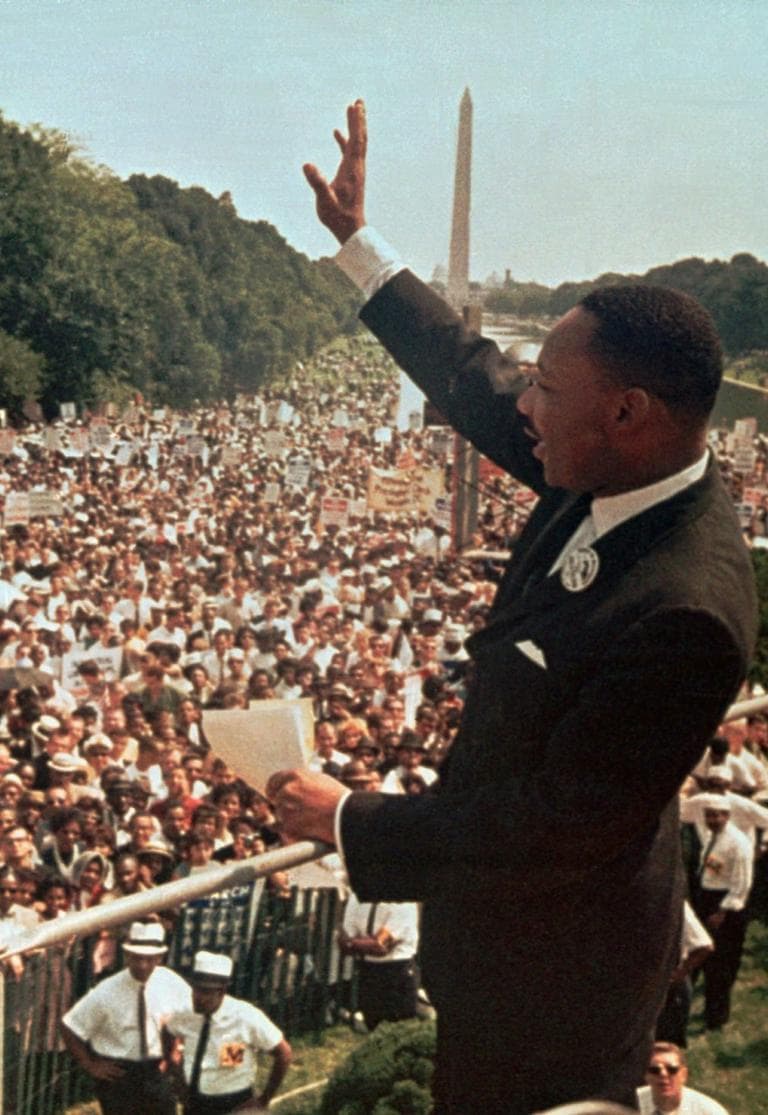Advertisement
My Boss Was Tarred And Feathered By The KKK
The year was 1971, my first as a school psychologist in Michigan’s Willow Run School District. On April 3, the eve of the third anniversary of Dr. Martin Luther King Jr.’s assassination, the school board met to consider its options for honoring the life and work of Dr. King.
Dr. R. Wiley Brownlee, the high school principal, was in favor of formally recognizing Dr. King — but not everyone in the community agreed.
Willow Run — which is located 35 miles west of Detroit — had a long history of racial polarization and this issue exacerbated those tensions. (Consider that just four years earlier, nearby Detroit had been the site of some of the bloodiest race riots in our nation’s history, leaving 43 people dead and 7,200 arrested.)
The ordeal attracted national media attention because it dramatized our nation’s continuing struggle to come to terms with the murder of its most prominent civil rights leader by an avowed white racist.
The board meeting ended without a consensus.
On his way home that evening, armed men in hoods forcibly pulled Dr. Brownlee over to the side of the road. They put a shotgun to his head and applied hot tar to his body, from his shoulders to his feet.
The crime, which was eventually linked to a group led by Robert Miles, the Grand Dragon of the Michigan Ku Klux Klan, is dryly summarized in the Global Terrorism Database under ID# 197104030003:
Dr. R. Wiley Brownlee, high school principle (sic) and promoter of racial coexistence was struck down and kidnapped by members of the Ku Klux Klan in Ypsilanti, Michigan, United States. Dr. Brownlee was released later in the night but not before he was tarred and feathered.
Dr. Brownlee was assaulted by a vigilante hate group because he advocated the celebration of Dr. King’s legacy.
The ordeal attracted national media attention because it dramatized our nation’s continuing struggle to come to terms with the murder of its most prominent civil rights leader by an avowed white racist.
When Dr. King was shot in 1968, I was a junior in college. I will never forget walking around our campus that night and seeing so many students crying. His compelling dreams of an imagined future where people were judged by the content of their character rather than the color of their skin disarmed our youthful cynicism. The poetry of his vision and his portrait of a united American community filled us with hope for the country’s future. His moral conviction, expressed with a total lack of malice or fear, made him a powerful role model for a meaningful adult life.

Dr. Brownlee had also been inspired and transformed by Dr. King’s message and the Klan’s crude attempt to intimidate and silence him failed. What wasn’t reported was that after the dust settled and the national media moved on, Dr. Brownlee fought on. He continued to argue that the entire community, white and black, should honor the contribution and sacrifice made by Dr. King. His progressive attitude was unacceptable to the majority of the Willow Run School Board and he was fired.
Dr. Brownlee’s thinking did eventually take hold — but it would take another few decades. President Ronald Reagan signed legislation to make Martin Luther King Jr. Day a federal holiday in 1983, but it wasn’t until 2000 that it was officially observed in all 50 states.
I have a photograph of Dr. Brownlee from that April night almost 42 years ago. He had come back to the school after his assault to seek help and clean up, when a senior named Rod Pearce took this picture. Tar is clearly visible on his hands, pants, shoes and shirt. When Dr. Brownlee showed up for work the next morning, undeterred and ready to resume his fight, it was an unforgettable moment for the staff and students, an indelible demonstration of determined leadership.
Today we honor the memory of the extraordinary civil rights leader Dr. Martin Luther King Jr. His prophetic words continue to be a gift to a country that has made much progress, but still has much more to do on the journey toward equality.
Let us also take a moment to remember and praise all of those citizens who, like Dr. Brownlee, took to heart Dr. King’s ideals; citizens who struggled and sacrificed in their local communities for an inclusive America.
Related:
This program aired on January 21, 2013. The audio for this program is not available.